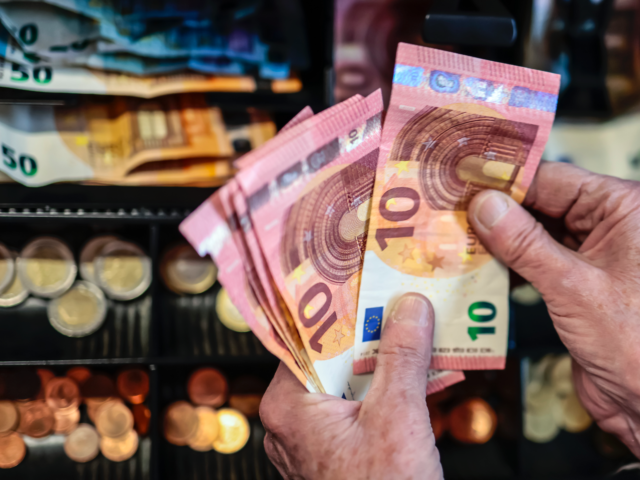A leading economist has warned that the price hikes facing German citizens will likely persist for up to a decade as the country is facing a potential recession due to rampant inflation.
Price increases caused by inflation have been hitting the German economy, among others globally, prior to the war in Ukraine due in large part to governmental decisions during the Chinese coronavirus crisis, such as government spending and lockdown policy.
Germany, which is heavily reliant on Russia to meet its energy demands, has seen its inflation rate hit the highest level since the fall of the Berlin Wall and reunification after the dissolution of the Soviet Union.
On Tuesday, the president of the German Institute for Economic Research (DIW) Marcel Fratzscher argued that the central issue driving up inflation now is fear among the public over the country’s economic future, yet admitted that price hikes would likely continue to rise “over the next five to ten years,” public broadcaster Deutsche Welle reported.
The leading economist argued that in order to “keep consumption buoyant”, the government should cut the Value Added Tax (VAT) from seven per cent to zero and offer employed people tax rebates of €300 (£250/$325) to help mitigate the rising cost of energy.
Fratzscher also said that wage increases will be necessary to prevent economic stagnation, saying that if salaries don’t rise “businesses will run into trouble, unemployment will rise and then we will get into a spiral of ever weaker growth and higher inflation.”
He went on to say that Germany should not implement socialist measures such as capping the price of fuel, noting that such a move “doesn’t reduce energy consumption, but ultimately throws a large part of this money down the throats of oil companies.”
German Inflation Hits Highest Level Since Fall of Berlin Wall, Growth Forecasts Cut in Halfhttps://t.co/PYnA9ZvCtA
— Breitbart London (@BreitbartLondon) April 1, 2022
On Tuesday, the International Monetary Fund (IMF) slashed growth expectations for Germany following the economic fallout of the war in Ukraine, reducing predicted growth from 3.8 per cent this year to 2.1 per cent.
“The main channel through which the war in Ukraine and sanctions on Russia affect the euro area economy is rising global energy prices and energy security. Because they are net energy importers, higher global prices represent a negative terms-of-trade shock for most European countries, translating to lower output and higher inflation,” the IMF noted.
Despite this, the leftist government in Germany has doubled down on its green agenda, upholding the ban on fracking and plans to shut down its remaining nuclear power plants, while looking to other authoritarian regimes such as Islamist Qatar for new supplies of natural gas.
The economic powerhouse of Europe has already been facing warnings of a recession, as food and fuel prices have experienced increases not seen in six decades, and some shops hiking food prices by as much as 50 per cent.
Western Citizens Should Pay More to Help Germany Get off Russian Gas, Says Former UK Army Chiefhttps://t.co/3fWHAvZ6ab
— Breitbart London (@BreitbartLondon) April 16, 2022
Follow Kurt Zindulka on Twitter here @KurtZindulka

COMMENTS
Please let us know if you're having issues with commenting.